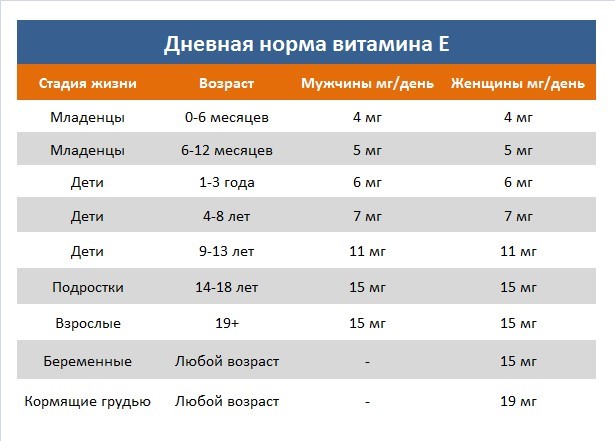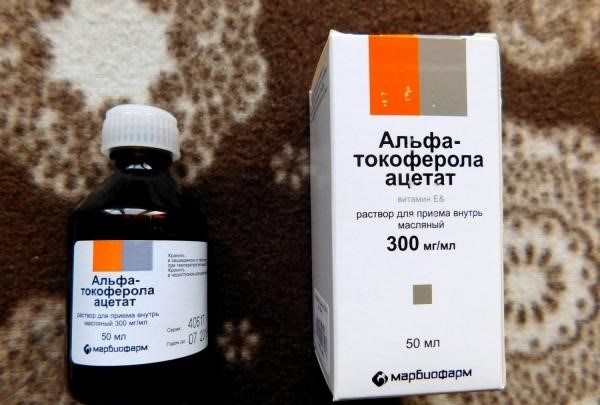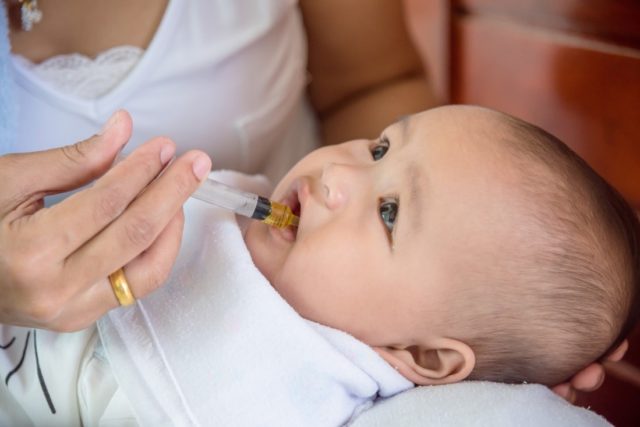Content
Tocopherol plays an important role in the formation of bone, muscle and immune systems. Vitamin E for newborns is an important element, in case of deficiency of which the breakdown of red blood cells (red blood cells) occurs.

The element was discovered in 1922. Later in 1939, its active compound was isolated from wheat germ oil. Tocopherol got its name from the Greek words tocos - birth and ferein - to grow, since the substance allowed animals to have offspring.
Why is vitamin E prescribed for newborns?
The main sources of tocopherol from food are vegetable oils. Infants in the first year of life who receive breast milk are less likely to be deficient in vitamin E than those who are bottle-fed.
From the moment of birth to the age of 6 months, the need of a growing organism for tocopherol is 2 - 3 mg or 3 - 4 IU (medical units) per day. Such a small dose plays a key role in the development and growth of a child.
A powerful antioxidant, it helps the body reliably protect itself from many problems. Vitamin E is necessary for an infant to ensure the proper development of the muscular system, bone skeleton and to lay the "foundation" of immunity.
The effect of tocopherol on the body is as follows:
- normalization of muscle tone, skeletal structure;
- improving blood circulation and the supply of iron to the blood to prevent anemia;
- participation in the synthesis of proteins and provitamin A, hormones;
- ensuring the functioning and formation of the endocrine system;
- prevention of inflammatory processes and strengthening of the immune system;
- improvement of trophism of brain tissues and nerve endings;
- weight gain;
- development of vision;
- strengthening the cardiovascular system;
- protein-carbohydrate metabolism in the body;
- acceleration of tissue regeneration.
Tocopherol is prescribed not only for newborns, but also for children of any age. The indications are increased loads, frequent colds, overwork, adolescence, living in ecologically unfavorable areas, recovery of the body after surgical interventions.

Why vitamin E deficiency is dangerous for newborns
A true deficiency of tocopherol in the body is rare. Due to the imperfection of the digestive system, premature babies are often exposed to it, whose body weight at birth does not exceed 1.5 kg.
The reason for the lack of vitamin E in some cases is the inability to assimilate fats in the intestine and genetic diseases. If you have one of the symptoms of a lack of tocopherol, you should consult a doctor.
The difficulty in diagnosing a deficiency of an element in newborns is that the baby cannot complain of characteristic symptoms, and external manifestations may be absent.The baby's parents mistake increased nervousness for anxiety caused by other reasons.
Dryness and peeling of the skin often indicates a lack of a whole complex of nutrients: vitamins A, E and group B. Indirectly, a deficiency of tocopherol can indicate lethargy, decreased weight gain and appetite.
Determination of hypovitaminosis will only allow a blood test. The clinical manifestations of a lack of vitamin E are expressed in the following symptoms:
- impaired coordination of movements;
- weight loss;
- weak muscle tone;
- upset stool;
- deterioration of vision;
- low hemoglobin levels (anemia);
- neurological disorders and slow reflexes;
- decrease in the body's immune abilities.
How to give vitamin E drops to babies
The baby cannot get the substance from food. Until 6 months, the child does not receive complementary foods. Therefore, it is necessary to give infants vitamin E in drops.
Thanks to tocopherol, the body rationally consumes protein, which is necessary for building the skeleton and muscular system. Improving metabolism has a positive effect on the tone of the baby. Already after several doses of the drug, the baby is confidently gaining weight, the body recovers faster after past illnesses.
Pharmacy offers the drug in various pharmaceutical forms. For newborns, it is recommended to take vitamin E in drops in the form of a 10% solution - tocopherol acetate.

Give a solution of vitamin E with a spoon or pipette, after stirring it with water. The best time to assimilate the element is the first half of the day.
Precautions
Vitamin E is available in pharmacies in various types of preparations. Newborns are advised to give tocopherol drops to avoid problems with swallowing. It is important to observe the dosage calculated and prescribed by the doctor.
With an accidental increase in the dose, episodic problems will not arise. But with a constant excess of the dosage, the baby will become restless, dyspeptic disorders may occur, and allergic rashes may appear.
The most difficult consequence of exceeding the recommended dosage is enterocolitis with possible foci of death of intestinal tissue, internal bleeding. Such complications threaten the life of the baby.
Parents should carefully study the instructions for use of the drug. Newborns can take the drug only as directed by a doctor in compliance with the dosage.
If, while taking tocopherol, stool disturbances, anxiety and general weakness are noted, it is necessary to inform the doctor about this. With the characteristic signs of an overdose, the infant can be given an enterosorbent, which effectively binds the vitamin molecules and prevents its further absorption.

Uncontrolled intake of vitamin preparations is not at all harmless, as many mistakenly believe. It is especially dangerous to use medicines and vitamin complexes without a doctor's prescription for newborn children. Not only parents, but also doctors cannot diagnose vitamin E deficiency in children without a blood test.
The starting point in all cases is a biochemical analysis of blood serum to assess the status of a given substance in the body.
Currently, science has no data on the toxicity of tocopherol. But the use of a dietary supplement in doses exceeding the permissible levels interferes with the absorption of vitamins K and D.

Pregnant and lactating women are advised to introduce vitamin E into their food using foods rich in this element. How to properly balance the diet and what is the mother's need for tocopherol, the doctor will tell you. If this measure is ineffective, the patient is prescribed a drug in any of the pharmacy forms.
When buying vitamin E in a pharmacy, you need to pay attention to the shelf life of the drug and the conditions for its administration. Vitamin E from different manufacturers can have different names and prices. The active ingredient in all these additives is tocopherol.
Contraindications and side effects
Contraindications for the use of tocopherol oil solution are as follows:
- individual intolerance;
- heart defects in babies 1 year old and growth of myocardial tissue;
- violation of blood clotting.
Vitamin E solutions are well tolerated and do not cause side effects. Parents of a newborn must strictly observe the dosage of the drug and the storage conditions of the vitamin product.
Overdose signs:
- visual impairment;
- general weakness, lethargy;
- dyspepsia (vomiting, loose stools, nausea);
- rash on the skin;
- restless sleep, moodiness.
At the first signs of intolerance and overdose, the drug is stopped to give the baby.
Conclusion
Vitamin E for newborns is prescribed for the normal development of the bone, muscle and cardiovascular system. For ease of administration, the drug for babies is released in drops in an oil solution. Fats promote the absorption of an important element.

